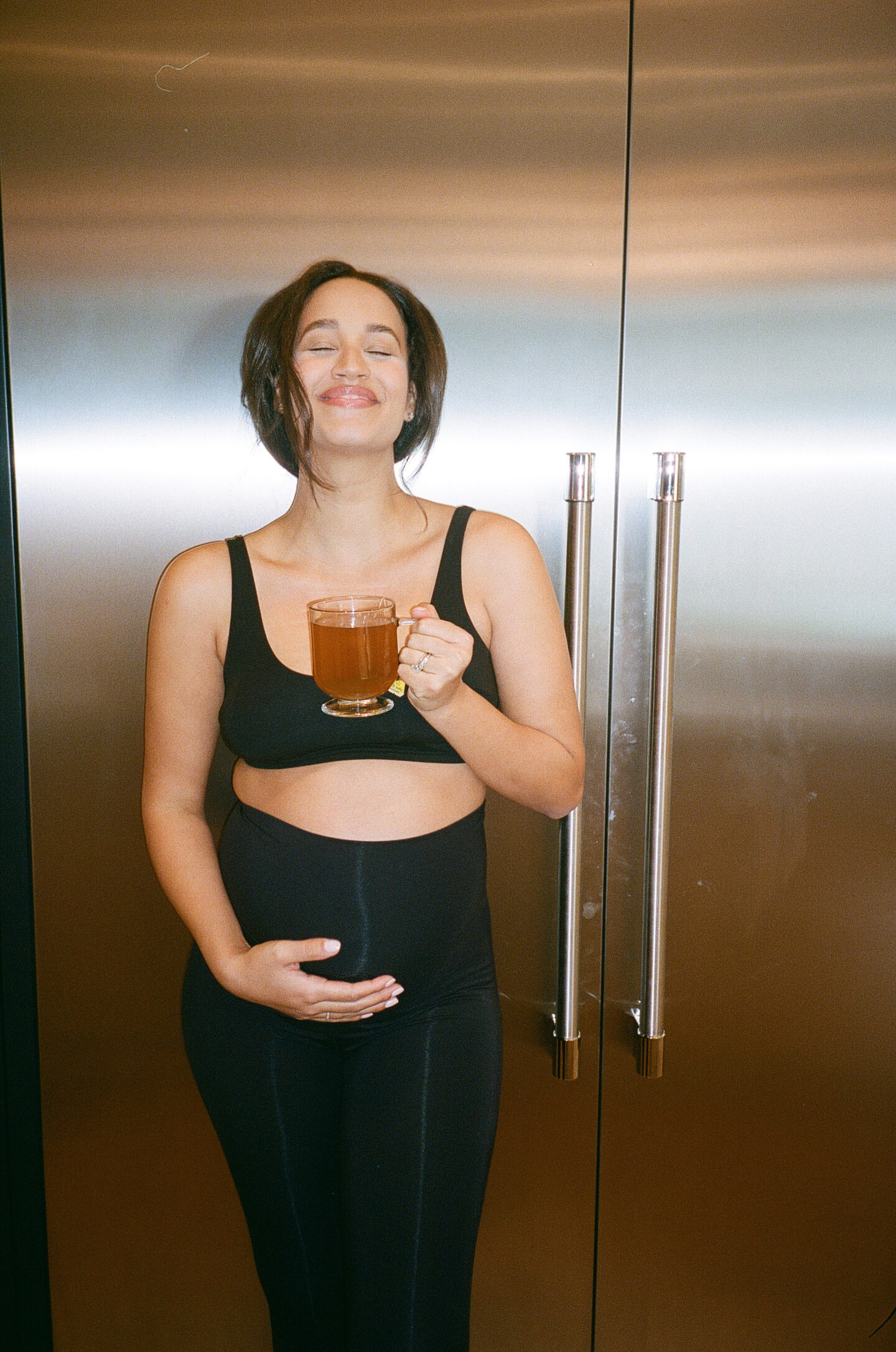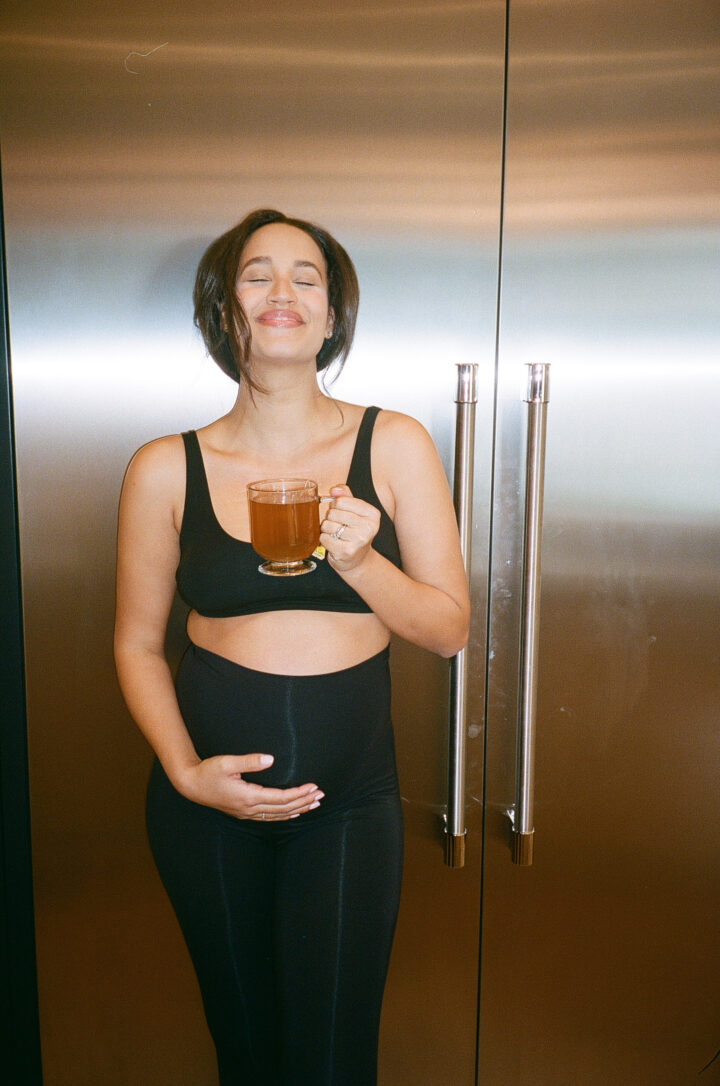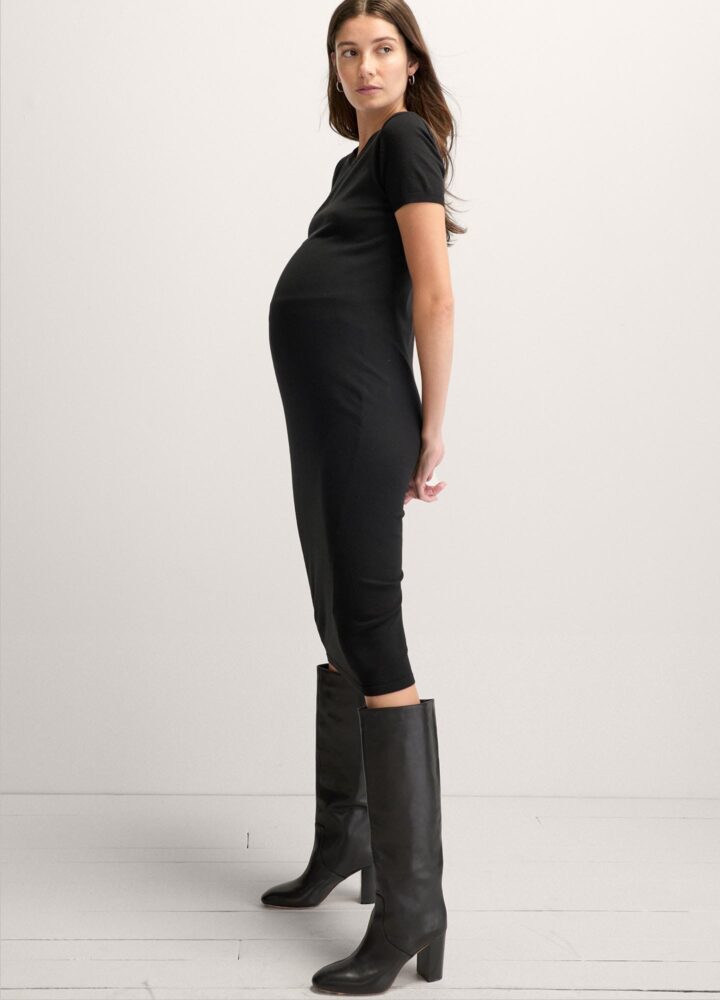Who hasn’t heard of the gorgeous green, antioxidant-rich powerhouse that is matcha? A beloved staple of many morning routines, this vibrant brew has taken the wellness world by storm. But what happens when you’re expecting, and what do the experts say?
Let’s dive in, mamas!
The Matcha Breakdown
Before we address the pregnancy-shaped elephant in the room, let’s unpack matcha itself. Originating from Japan, matcha is a finely ground powder of specially grown and processed green tea leaves.
Revered for its numerous health benefits, it’s known to enhance concentration, boost metabolism, and is a fantastic source of antioxidants. Who knew such a tiny leaf could pack such a punch?
But here’s the rub: Matcha also contains caffeine. Not a ton, mind you, but enough to give you a gentle lift. It’s not quite a coffee-level jolt, but it’s more than your average cup of tea.
Caffeine and Pregnancy: What’s the Deal?
We’ve all heard something about limiting caffeine intake during pregnancy. But why? Caffeine is a stimulant that increases your heart rate and blood pressure (kind of like when you spot a Hatch sale!). Too much caffeine can potentially lead to complications like preterm labor or reduced fetal growth. Yikes, right?
Health organizations like the American College of Obstetricians and Gynecologists suggest that a moderate amount of caffeine intake (about 200 milligrams per day) doesn’t significantly contribute to these risks. To put it into perspective, that’s roughly the equivalent of one 12-ounce cup of coffee.
Note: Make sure to consult with your healthcare provider about what is safe and ideal for you during your pregnancy. Everybody, every pregnancy, and every baby is different!
To Matcha or Not To Matcha?
So, you’ve got the low-down on caffeine and pregnancy, but where does this leave Matcha? Matcha, with its rich, creamy, and slightly grassy flavor, contains roughly 70mg of caffeine per teaspoon, less than a cup of coffee but more than regular green tea. We know — it’s like being stuck between a sip and a hard place!
Some research suggests that the antioxidants in matcha could potentially offset any minor adverse effects of its caffeine content. But here’s the tea: there’s no definitive answer. Studies and expert opinions vary, and ultimately, what’s right for one mama may not be right for another.
One thing we can all agree on? It’s crucial to discuss any dietary concerns, including your daily Matcha habit, with your healthcare provider. They’ll provide guidance tailored to your unique health profile and pregnancy journey. Remember, you’re brewing more than just tea — you’re brewing a beautiful, bouncy baby.
Alternatives to Matcha for the Pregnant Mama
If your healthcare provider advises you to limit your matcha intake or if you’re just exploring new drink horizons, fear not — there are plenty of other delicious, nutritious beverages to enjoy during your pregnancy. Here are a few of our favorites:
- Chamomile tea: A traditional sleep aid, chamomile is caffeine-free and offers a sweet, floral flavor that’s perfect for winding down after a long and exhausting day.
- Peppermint tea: Known for its soothing effects on the stomach and digestive system, peppermint tea is a fantastic choice if you’re battling morning (all-day) sickness or experiencing indigestion.
- Ginger tea: Speaking of nausea, ginger tea is another fantastic choice to soothe an upset tummy. The warming and spicy nature of ginger can aid in digestion and alleviate nausea or motion sickness.
- Lemon water: Simple but incredibly refreshing, lemon water is a great way to stay hydrated and get a dose of immune-boosting vitamin C and support your digestion.
- Coconut water: Hydrating and naturally rich in electrolytes like potassium, coconut water can help replenish fluids and promote hydration.
- Fresh fruit smoothies: An excellent way to incorporate a variety of fruits (and even some veggies!) into your diet, fresh fruit smoothies are a delicious and nutritious option.
- Bone broth: Full of essential nutrients, amino acids, and collagen, bone broth can be incredibly nourishing. It is gentle on the stomach and can aid in digestion, support joint health, and promote healthy hair, skin, and nails.
- Decaf coffee: If you can’t let go of your coffee routine, decaf is a safe alternative that still provides that familiar coffee taste.
The Bottom Line
So, is matcha safe during pregnancy? The short answer: it depends. Moderation is key, and it’s important to always consult with your healthcare provider. Every pregnancy is as unique as the mama experiencing it, so it’s vital to make decisions based on your individual health needs.
Remember, whether you’re sipping matcha in your favorite Eliza Maternity Dress or munching on pickles at 3 am, you’re doing an amazing job. After all, motherhood isn’t a perfect journey; it’s a personal one. For more support, tips, and a good dose of mom humor, check out Babe by Hatch.
So, here’s to you, mamas — whether you’re a matcha lover or prefer a decaf brew, you’re nurturing life, and that’s something truly extraordinary. Keep being the incredible, life-creating goddess you are!
Sources:





